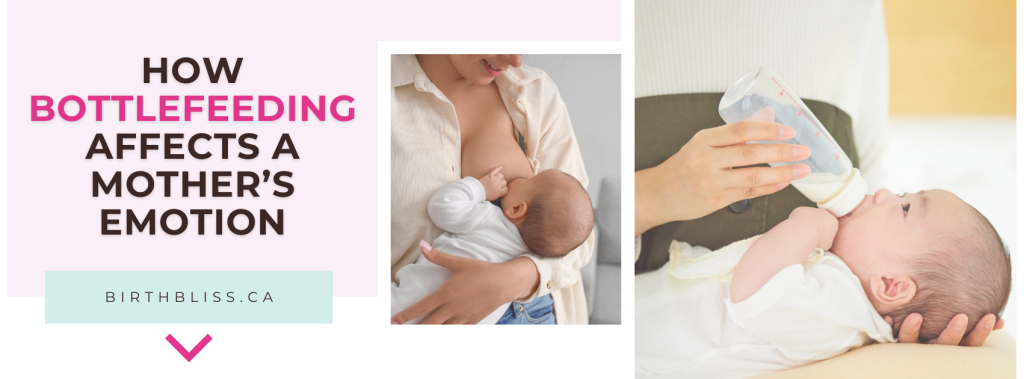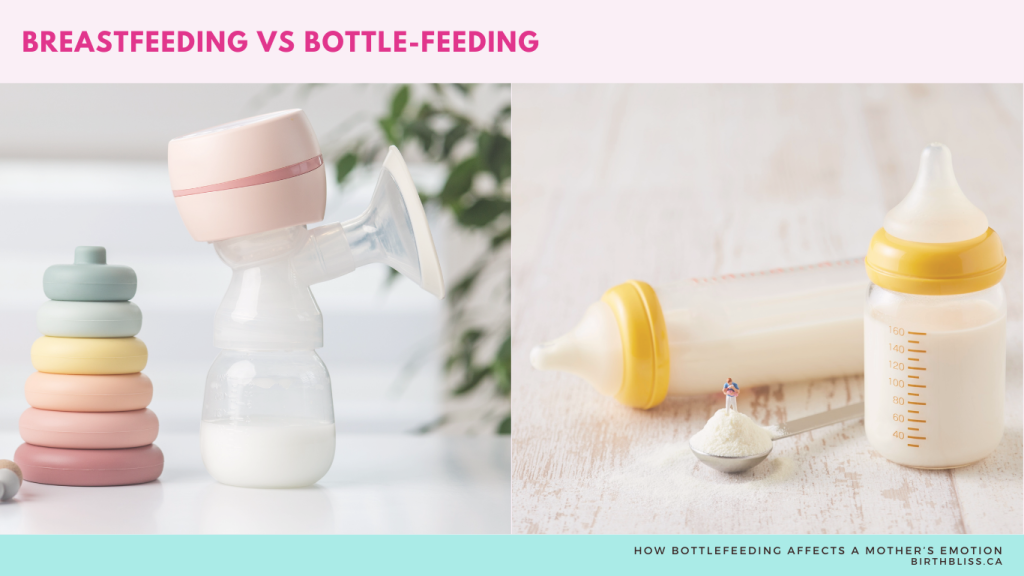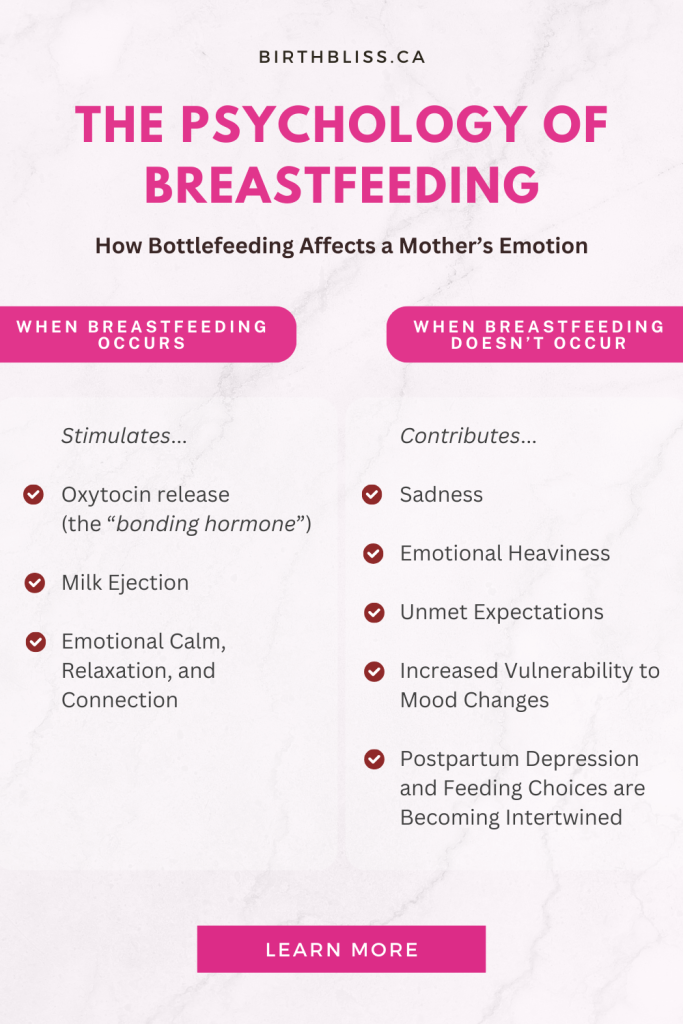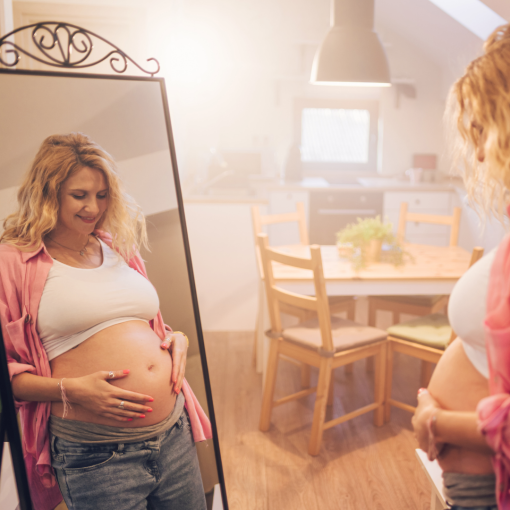
What Science Says About Mood, Bonding, and Postpartum Grief
Why Feeding Choices Affect a Mother Emotionally
When discussing breastfeeding vs bottle-feeding, most conversations focus on the baby’s nutrition and long-term health. But an equally important question is often overlooked:

How do feeding choices affect the mother’s emotions, mental health, and sense of connection?
Many moms quietly ask themselves:
“Why do some mothers feel sad after bottle-feeding?”
“Does not breastfeeding affect a mother’s emotions?”
“Is it normal to grieve when you can’t breastfeed?”
“Can bottle-feeding cause feelings of loss or grief?”
The short answer is yes, these emotions can be normal, and biology may play a role.
The Hormonal and Psychological Shifts After Birth
During pregnancy, the body prepares for breastfeeding through powerful hormonal changes. Levels of prolactin, estrogen, progesterone, and lactogen rise, shaping both the breasts and the brain for nurturing behavior. This biological preparation is deeply tied to the psychology of breastfeeding.
When breastfeeding occurs, the suckling stimulates:
- oxytocin release (the “bonding hormone”)
- milk ejection
- emotional calm, relaxation, and connection
These hormonal changes after childbirth support maternal bonding and emotional health.
But when breastfeeding does not happen, even for reasons beyond a mother’s control, these hormonal pathways abruptly shift, sometimes contributing to:
- sadness
- emotional heaviness
- unmet expectations
- increased vulnerability to mood changes
- postpartum depression and feeding choices are becoming intertwined

The Evolutionary Psychology of Motherhood and Grief
Evolutionary psychologist Gordon Gallup proposes a striking idea:
Throughout human history, the sudden absence of breastfeeding often meant infant loss.
This means the mother’s biology might interpret the lack of suckling as a signal of something being wrong, even if the baby is healthy and thriving.
In this theory, bottle-feeding may unconsciously mirror an evolutionary pattern associated with loss. This does not mean mothers think their babies are gone. Instead, their internal biology recognizes that a process meant to continue (breastfeeding) has stopped, triggering emotions that resemble grief.
This may help explain why some mothers experience:
- grieving not breastfeeding
- heightened sadness or guilt
- a strong urge to hold or stay close to their babies
- a sense of missing out on something deeply expected
These experiences are not failures; they are biologically meaningful emotional responses.
What Research Shows About Emotional Effects of Bottle-Feeding
In one study, researchers found that mothers who bottle-fed often reported higher scores on the Edinburgh Postnatal Depression Scale. Many also described a stronger need to hold or cling to their babies, along with more frequent waves of sadness or emotional disconnection. According to the researchers, these responses may reflect the body’s natural attempt to seek the closeness typically supported by breastfeeding, through oxytocin release, moments of calm, reduced stress, and deeper mother-infant bonding. This doesn’t mean that bottle-feeding is harmful; rather, it suggests that some mothers may simply benefit from more emotional support, reassurance, and understanding during this transition.
Is It Normal to Feel Grief When You Can’t Breastfeed?
Yes. And it deserves compassion, not judgment.
Many mothers ask:
“How does breastfeeding help with postpartum emotions?”
“Why do I feel loss or sadness when bottle-feeding?”
These feelings can come from:
- hormonal shifts
- unmet expectations
- biological reflexes
- cultural pressure
- the deep-rooted evolutionary psychology of motherhood
Understanding this can help mothers see their emotions as valid and not signs of weakness.
Whether a mother chooses breastfeeding or bottle-feeding, the goal is the same:
A healthy, emotionally supported, deeply connected relationship with her baby.
✨Exclusive Deals:
- Grab Mellow Mornings for Pregnancy for a calm start to your day filled with baby love 💖 https://get.birthbliss.ca/mellow-mornings/
- Get relief from pregnancy nausea! 🤢 → 😌 Discover the Bye-Bye Morning Sickness Formula: https://get.birthbliss.ca/bye-byemorningsickness/
- Find Connection Inside BLOOMFUL. 🌸 Join a community of expecting moms just like you, exploring holistic tools for a better pregnancy. https://get.birthbliss.ca/bloomful/
- Grab the Guide to an Easier Birth 🌟: https://get.birthbliss.ca/bb/
- Join our FREE → ❤️ LOVE Your Birth Workshop: You’ll learn 3 steps to ease pain during labor (without an epidural): https://get.birthbliss.ca/training/




